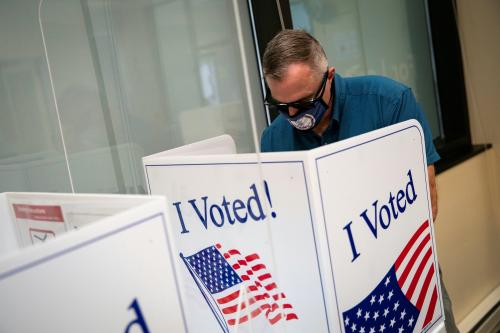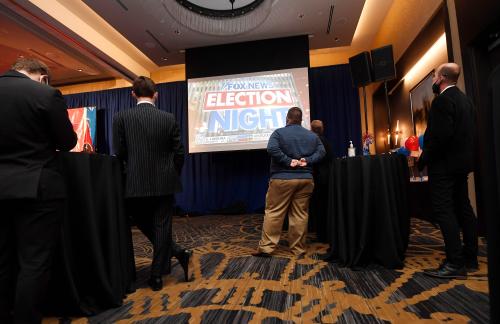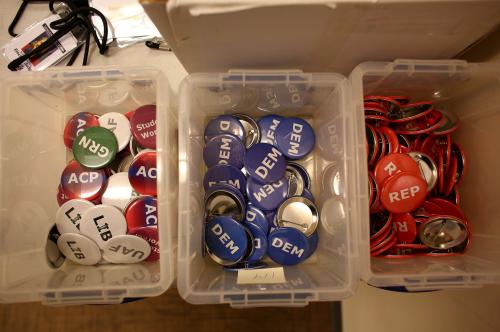As election night stretches into election week, it’s time to consider the possibility that election night as we know it should become a thing of the past. The art of political forecasting, the speed of vote counting and tabulating, and the enormous resources news organizations pour into covering elections have spoiled us—we’ve become accustomed to instant gratification.
But perhaps it is time to learn the virtue of patience and change the way we think about election night. Maybe we should let states count and report vote totals that are more meaningful. Instead of dribbling out the counts over hours and days, perhaps the states should get together and agree not to report anything until at least 50% of the vote is counted and the count includes all different types of voting. This could delay reporting results until at least the morning after Election Day and maybe even later. But when results do come in, the public will have a more accurate picture of what has gone on in any given state.
There are several advantages to getting rid of election night. Let’s start with the fact that mail-in balloting and early voting, which were increasing steadily before the pandemic started, are most likely here to stay. A Pew poll from this year found that 40% of voters preferred to vote in person but 39% wanted to vote by mail and 18% wanted to vote early.
Because of the pandemic, voters took to these methods enthusiastically. Early voting was vastly more popular this year than it was in 2016, even though with the precautions taken at polling places, voting in person was probably not much more dangerous than going to the supermarket.
Even once the pandemic is passed, early voting will be here to stay for two reasons. First, early voting is convenient and prudent—if your kindergartener wakes up with a fever on Election Day you don’t have to worry about leaving her to find time to go and vote. Second, in a highly polarized country, millions of voters know well before Election Day who they will vote for, especially as presidential candidates grow ideologically more distant over successive cycles. And events, such as Trump’s disastrous first debate, don’t seem to have much impact on that polarized electorate.
The problem with mail-in voting is that it involves opening millions of ballots, making sure they are legal (often via scanning a barcode and checking signatures), flattening the folded ballot, and then running them through scanners. As we’ve seen this week, the process is long and arduous. And as votes dribble in and one candidate leads and then another, the atmosphere is ripe for conspiracy theories that undermine trust in the system. As President Trump’s lead in Pennsylvania and Georgia began to evaporate, he became convinced that something was wrong. And no doubt there are Democrats who share the same paranoia about the evaporation of Biden’s early leads in Ohio and Florida. Even if states increase their capacity to count mail-in ballots, the counting will still take longer.
Besides the fact that it would be good to report all types of balloting at once, there are other reasons why getting rid of election night may be a good idea. As the 2020 presidential election showed, we are still a very polarized and divided nation and no party has a dominant position in the electorate. Biden’s (seemingly) narrow win in the Electoral College did not produce the expected increase in the Democratic House majority and appears not to have produced Democratic control of the Senate. To the extent that we are in for a period of very close elections, an increasing percentage of votes will need to be counted in a given state before the race in that state could be called for one candidate or the other. So, in that sense, more competitive elections—at the presidential level and other levels—should increase our desire to get rid of election night as we know it.
Finally, we are in a period of massive distrust of institutions. The wild swings in the vote count that occur naturally as votes come in county by county breed paranoia and suspicion in a country that seems to have fallen in love with conspiracy theories. The most important thing states can do in the future is to do their job without highly caffeinated television personalities breathing down their necks for results. Waiting 12 or 24 hours before reporting any results will give citizens a clearer picture of what’s happening in each state and make it harder for either side to cook up conspiracies.
The Trump era has inflicted much damage on American institutions, and in all areas of democracy, we need to rebuild trust. We can start with the election process.






Commentary
Is it time to get rid of election night?
November 6, 2020